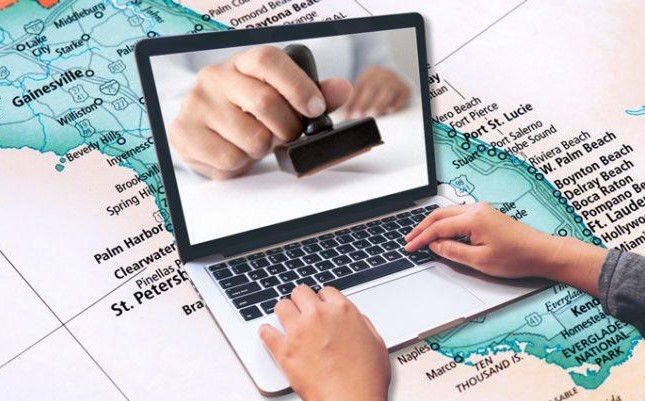
“The future is here – it’s just not evenly distributed.” The significant push for remote online notarizations, borne out of necessity during the COVID-19 pandemic, has highlighted how these digital technology tools can be leveraged in various circumstances. This article will explore the technology behind RON, also known as virtual notarization.
What is Remote Online Notarization (RON)?
RON is an advanced form of eSignature that allows notaries to conduct signings remotely using online audio-visual technology. Notaries can use a secure video session to verify the identity of signers and perform a notarization without having to meet them in person.
This means that a notary can legally authenticate signatures on documents from parties located in the same state, in a different state or territory, or even in another country as long as they follow their notary laws and have proper identification available for verification purposes. As a result, RON provides increased access and convenience for borrowers, title & escrow companies, and lenders.
Whether you want to grow your business or improve your current processes, RON or virtual notarization is the way to go! Learn more about this innovative technology and how it can help close loans faster and improve customer satisfaction. Click here to get started! Loan Signing System offers courses to help you become a licensed remote online notary in your state.
What are the Benefits of RON?
With mortgage professionals and borrowers seeking a convenient, intuitive experience with RON, lenders can leverage this digital closing solution to provide best-in-class customer service while delivering more compliant, efficient, and profitable closings. Successfully implementing this technology requires aligning your business with digital mortgage technology that offers an eClosing solution, including a robust RON provider like ProperSign.
RON helps notaries work more efficiently by eliminating the need to travel to loan signing assignments, which can save gas and reduce expenses. It also eliminates signer wait times, which can frustrate both parties.
RON also provides additional security by using identity verification technology to validate the signer’s identification and verify their location before starting an audio-visual session. This includes verification of government-issued ID, knowledge-based authentication (KBA), and credential analysis. Depending on your state’s regulations, this adds another layer of protection to prevent fraud.
How Does RON Work?
As the name suggests, RON is conducted online using audio-visual technology, providing notaries with a platform to complete an electronic signing session. Notaries have access to protocols for knowledge-based authentication (KBA) and can run government IDs against official databases to verify the signer’s identity before allowing them to execute documents.
RON also allows notaries to conduct multiple signature sessions simultaneously, saving valuable time. Additionally, RON eliminates the need for paper documents to be printed, signed, and mailed, cutting supplies costs, reducing waste and carbon emissions, and aligning with sustainability goals that many companies strive for.
Adding RON to your title & escrow or lending business can help you feel in control of the closing process. Hosting and executing a closing with your customers, partners, and preferred remote notaries simultaneously creates an incredible customer experience while cutting closing day expenses by up to 50{dfea85d2a0d2688111673469d41dc0f0a8908d1481bc10be782382c210ce58fe}.
What Are the Challenges of RON?
Despite the apparent benefits of RON, it remains relatively new, and there still needs to be more clarity. This is especially true regarding state laws that dictate how RONs must be conducted.
Each state’s RON law has specific stipulations that must be adhered to by both notaries and signers. For example, most states require a notary to be present and meet with the signer in person during the RON session.
Other states, such as New York, require that the notary use technology to verify the signer’s identity. This can be done through a popup window or through Secured Signing’s RON platform, which uses accurate geolocation to determine the notary’s location during the signing.
To ensure your organization uses the best RON technology, choose one that provides a complete and accurate audit trail for every notary session. This includes a tamper-evident certificate, a video recording of the notary meeting with the signer, and an electronic journal that meets all state RON requirements.



